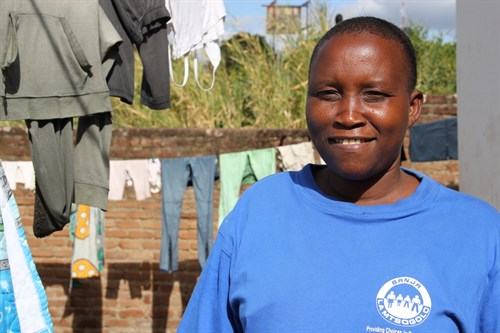
How relationships shape community health workers’ performance in Ethiopia, Kenya, Malawi and Mozambique

By Maryse Kok, KIT
Community health workers (CHWs) have a unique position between communities and the health sector. Relationships are the glue that support CHWs in their interface role. The strength of CHWs’ relationships influences their motivation and performance, which can affect the quality of the services they provide. This is an area that policy makers and programme managers need to take seriously if they aim to improve service coverage and quality.
To understand the importance of relationships to the work of CHWs, REACHOUT conducted a qualitative comparative study in Ethiopia, Kenya, Malawi and Mozambique. This work offers important lessons for countries that are reliant upon CHWs to improve citizen’s health and wellbeing.
What did we do?
We conducted focus group discussions and interviews with CHWs, their supervisors, managers, and community members. We collected interviewees’ perspectives on factors that influenced the performance of CHWs and relationships between CHWs, communities and the health sector (supervisors, managers and health professionals). A comparative analysis with a “realist lens” was conducted, identifying which mechanisms, in which contexts, led to either trusting or weak CHW relationships. These are called context-mechanism-outcome (CMO) configurations.
Relationships between CHWs and communities
Trusting relationships between CHWs and their communities were a result of:
- Feelings of connectedness, familiarity, serving the same goals, and free discussion;
- The perception that CHWs serve in the community’s interest and enhanced recognition, respect and credibility from the community; and
- Feelings of CHW self-fulfilment.
The way in which programmes are designed can support trusting relationships. For example, it helped if CHWs were recruited from the place that they would be working in, with the involvement of communities in decision making. The involvement of volunteers as an official element of the programme was perceived to be helpful, as was the involvement of traditional leaders. Trusting relationships could be enhanced if curative tasks were shifted to CHWs. In contexts where gender roles in (reproductive) health care were separated having female CHWs was important.
Other broader contextual elements that were considered important included: valuing and promoting community participation; a history and value of volunteerism, and the importance of and respect for traditional leadership at the community level.
Relationships between CHWs and the health sector
Trusting relationships between CHWs and the health sector were related to feelings of connectedness and serving the same goals (from both sides) and CHWs’ belief that they were supported. Other studies have identified additional mechanisms, for example, related to health professionals reporting that CHWs assist them in reducing their workload. For the mechanisms to take place, the following programme-related contextual factors were found to be important:
- Professional support structures to be available;
- Curative tasks to have been shifted to CHWs; and
- Regular and visible supervision to take place.
We found that weak relationships between CHWs and their supervisors and managers were a result of disrespect and doubts from the health sector about CHWs’ competencies; CHWs feeling disconnected, unfamiliar and unsupported, or having a lack of confidence or perceptions of dishonesty and unfairness in supervisors and management; and misunderstandings related to lack of communication (from both sides). In some cases, weak relationships between CHWs and their supervisors or managers had a negative knock-on effect on the strength of CHWs’ relationships with their communities.
Some CMO configurations were more specific to particular settings. For example, in Ethiopia communities could perceive CHWs as dishonest if they were (forced to be) involved in politics. In Malawi, communities perceived CHWs as not trustworthy if volunteers received different and irregular incentives, as a result of multiple vertical programmes.
What next?
The study demonstrated a complex interplay of factors influencing trust, and thereby the strength of relationships, between CHWs, their communities and actors in the health sector. Trusting relationships are instrumental to improve CHW performance and should not be overlooked in programme design. Policy makers and programme managers should take into account the broader context and could adjust CHW programmes so that they trigger mechanisms that generate trusting relationships between CHWs, communities and other actors in the health system. Hereby, lessons learnt on what worked in comparable contexts should be taken into account.
Photo credit: The image is of Hope who works for a UK aid supported family planning clinic, Banja La Mtsogolo which means "Future Families." She was originally a client at the clinic and then became a Community Health Worker. It was taken by Lindsay Mgbor/Department for International Development
Recent news
- Embedding Group supervision to ensure quality maternal health services in Shebedino District, Ethiopia, 15 April 2015
- Community engagement in Ethiopia: Efforts towards improved maternal health, 29 March 2015
- Practical training on e-health delivered by REACH Ethiopia, 23 March 2015

This project is funded by the European Union.